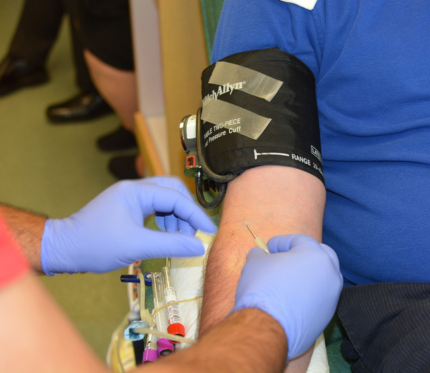Blood Donation
Our Services
CONSOLE Online Blood Donors Forum
Blood donation is a noble act that saves lives. A single unit of donated blood can be separated into plasma, platelets, and red cells, benefiting three different patients.CONSOLE operates an online blood donors forum, connecting donors with those in need, ensuring timely help round the clock.

Do something amazing today!
